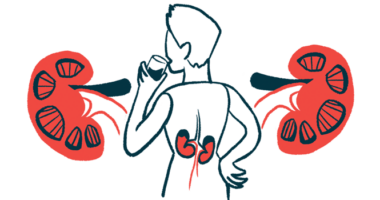Man develops aHUS and kidney failure following COVID-19 vaccination
Case calls for doctors to be aware of rare potential complications

A 38-year-old man developed atypical hemolytic uremic syndrome (aHUS) and end-stage kidney disease (ESKD) after receiving his first dose of AstraZeneca’s COVID-19 vaccine, according to a case report.
The patient was admitted to a hospital in Saudi Arabia one week after being vaccinated. Tests revealed changes in blood parameters associated with aHUS and severe kidney dysfunction.
Researchers considered it a “rare and challenging diagnosis” since, contrary to previous cases, “the patient did not have any detectable gene mutation associated with aHUS.”
His case was described in a study, “End-Stage Kidney Disease Resulting from Atypical Hemolytic Uremic Syndrome after Receiving AstraZeneca SARS-CoV-2 Vaccine: A Case Report,” published in the journal Vaccines.
aHUS patients have more than 50% risk of end-stage kidney disease
aHUS is a type of thrombotic microangiopathy — a group of diseases characterized by the formation of blood clots in small blood vessels, which can lead to organ damage.
This rare disease is marked by a genetic or acquired dysfunction of the complement cascade — a group of immune proteins that trigger inflammation and blood clotting when activated.
It has a poor prognosis, with patients having a more than 50% risk of developing ESKD, the final stage of chronic kidney disease.
“Having prompt and definitive diagnosis is the key for successful treatment,” the researchers wrote.
All approved vaccines against SARS-CoV-2, the virus that causes COVID-19, have been shown to be effective and well-tolerated, but a few case reports have described the development of aHUS following vaccination.
Now, researchers in Saudi Arabia described the case of a man, 38, who developed aHUS one week after being given the first dose of AstraZeneca’s COVID-19 vaccine.
The patient was admitted to the hospital complaining of shortness of breath, body weakness and fatigue, and swelling around the eyes. He had no known health issues, allergies, vaccine reactions, or family history of kidney disease.
Blood tests revealed he had anemia, or a lack of red blood cells, as well as a low platelet count. He also showed signs of kidney impairment, with creatinine levels being excessively high, and both blood and proteins were found in his urine. Creatinine is a marker of kidney function.
The typical symptom triad of anemia, low platelet counts, and kidney injury led doctors to suspect thrombotic microangiopathy. When additional tests ruled out other forms of the disorder, the patient was diagnosed with aHUS.
Due to his severe kidney impairment, the patient underwent hemodialysis — a type of treatment used to filter waste products from the blood that is performed when the kidneys no longer function normally — three times weekly.
In addition, he was treated with prednisone and rituximab, two immunosuppressants.
Patient progressed to end-stage kidney disease
When discharged after spending more than five weeks in the hospital, the patient showed improvements in his bloodwork, with his platelet count rising and hemoglobin stabilizing. Hemoglobin is the oxygen-carrying protein in red blood cells; low hemoglobin levels are a sign of anemia.
However, there were no improvements in kidney function, with creatinine levels remaining excessively high. As a result, the patient continued undergoing dialysis with the same frequency.
After three months of follow-up, his bloodwork remained stable, but he was still dependent on dialysis and, despite thorough analyses and treatment, the patient progressed to ESKD.
“We believe that our patient had aHUS and the AstraZeneca SARS-CoV-2 vaccine was the trigger, given the short period between vaccination administration and the development of the disease,” the researchers wrote.
“We believe that late presentation contributed, at least partially, to the severity and irreversibility of kidney damage. This case calls for measures to increase the physicians’ awareness and educate patients of this potential complication to allow for early detection to improve patient outcomes,” they added.








